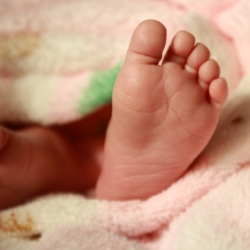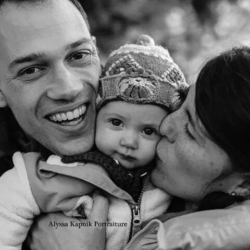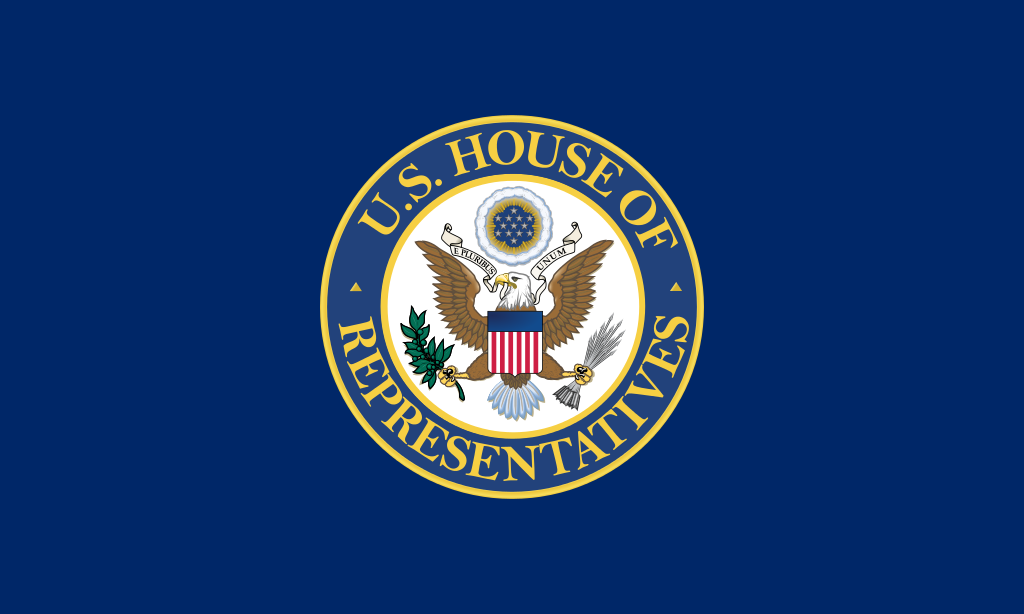This Simḥat Bat is really distinguished by Rabbi Kaunfer’s innovation in using milk in the context of a covenant ceremony. From the explanatory notes:
In place of the blood of the slaughtered bulls from the covenantal ceremony in Exodus, we looked for another substance to effect the covenant ceremony. Amalya was born right after Shavuot, on which we have a tradition to eat dairy. In fact, milk itself is associated with the acceptance of Torah, as described in the following Midrash which quotes a verse from Song of Songs (4:11):
Sweetness drops from your lips, O bride; honey and milk are under your tongue and the scent of your robes is like the scent of Lebanon.
| Hebrew | English |
|---|---|
שמחת בת של עמליה שחר בת הרב אליעזר גרשון ולאה פייגע |
Simḥat Bat of Amalya Shaḥar Exler-Kaunfer May 31, 2010 · 18 Sivan 5770 |
Welcoming Amalya Shaḥar | |
As Amalya enters the room, carried by her Savta Marcia Kaunfer, we’ll sing a niggun to welcome her. | |
Sabba (Grandpa): | |
בְּרוּכָה אַתְּ לַה׳ בִּתִּי. (רות ג:י) קוּמִי אוֹרִי כִּֽי בָא אוֹרֵךְ וּכְבוֹד ה׳ עָלַיִךְ זָרָֽח. (ישעיה ס:א) |
Blessed are you to YHVH, my daughter. (Ruth 3:10) Arise, shine, for your light has dawned. YHVH’s radiance shines upon you. (Isaiah 60:1) |
Verses of Thanksgiving | |
Lisa: | |
וְעַתָּה ה׳ אָבִינוּ אָתָּה, אֲנַחְנוּ הַחֹמֶר וְאַתָּה יֹצְרֵנוּ וּמַעֲשֵׂה יָדְךָ כֻּלָּנוּ. (ישעיה סד:ז) |
But now, YHVH, You are our parent; we are the clay and You are the potter; we are all the work of Your hands. (Isaiah 64:7) |
Elie: | |
יוֹדוּ לַה׳ חַסְדּוֹ וְנִפְלְאוֹתָיו לִבְנֵי אָדָם. (תהלים קז:ח) |
Let them praise YHVH for God’s steadfast love, God’s wondrous deeds for humankind. (Psalms 107:8) |
Everyone: | |
הוֹדוּ לַה׳ כִּי טוֹב כִּי לְעוֹלָם חַסְדּוֹ. (תהלים קיח:א) |
Hodu l’Adonai ki tov, ki l’olam hasdo. Praise YHVH for God is good; God’s steadfast love is eternal. (Psalms 118:1) |
Welcoming Amalya into the Covenant: Background Texts | |
We will welcome Amalya into the brit (Jewish covenant) using a similar ritual to the one we created for her sister, Maytal. The ritual is based on the following text: | |
שמות כד:ג-ח וַיָּבֹא מֹשֶׁה וַיְסַפֵּר לָעָם אֵת כָּל דִּבְרֵי ה׳ וְאֵת כָּל הַמִּשְׁפָּטִים וַיַּעַן כָּל הָעָם קוֹל אֶחָד וַיֹּאמְרוּ כָּל־הַדְּבָרִים אֲשֶׁר דִּבֶּר ה׳ נַֽעֲשֶֽׂה: וַיִּכְתֹּב מֹשֶׁה אֵת כָּל דִּבְרֵי ה׳ וַיַּשְׁכֵּם בַּבֹּקֶר וַיִּבֶן מִזְבֵּחַ תַּחַת הָהָר וּשְׁתֵּים עֶשְׂרֵה מַצֵּבָה לִשְׁנֵים עָשָׂר שִׁבְטֵי יִשְׂרָאֵֽל: וַיִּשְׁלַח אֶֽת נַֽעֲרֵי בְּנֵי יִשְׂרָאֵל וַֽיַּֽעֲלוּ עֹלֹת וַֽיִּזְבְּחוּ זְבָחִים שְׁלָמִים לַה׳ פָּרִֽים: וַיִּקַּח מֹשֶׁה חֲצִי הַדָּם וַיָּשֶׂם בָּֽאַגָּנֹת וַֽחֲצִי הַדָּם זָרַק עַל הַמִּזְבֵּֽחַ: וַיִּקַּח סֵפֶר הַבְּרִית וַיִּקְרָא בְּאָזְנֵי הָעָם וַיֹּאמְרוּ כֹּל אֲשֶׁר דִּבֶּר ה׳ נַֽעֲשֶׂה וְנִשְׁמָֽע: וַיִּקַּח מֹשֶׁה אֶת הַדָּם וַיִּזְרֹק עַל הָעָם וַיֹּאמֶר הִנֵּה דַֽם הַבְּרִית אֲשֶׁר כָּרַת ה׳ עִמָּכֶם עַל כָּל הַדְּבָרִים הָאֵֽלֶּה: |
Exodus 24:3-8 Moses went and repeated to the people all the commands of YHVH and all the rules; and the people answered with one voice, saying, All the things that YHVH has commanded we will do! Moses then wrote down all the commands of YHVH. Early in the morning, he set up an altar at the foot of the mountain, with twelve pillars for the twelve tribes of Israel. He designated some young men among the Israelites, and they offered burnt offerings and sacrificed bulls as offerings of well-being to YHVH. Moses took one part of the blood and put it in basins, and the other part of the blood he dashed against the altar. Then he took the book of the covenant and read it aloud to the people. And they said, All that YHVH has spoken we will do and obey. Moses took the blood and dashed it on the people and said, This is the blood of the covenant that YHVH now makes with you concerning all these commands. |
Based on this Biblical covenant ceremony, we fashioned the following ritual. In place of reading all the commands of God, we looked to a rabbinic text that indicates the essence of the Torah. | |
תלמוד בבלי מכות כג-כד. דרש רבי שמלאי: שש מאות ושלש עשרה מצות נאמרו לו למשה… בא מיכה והעמידן על שלש, דכתיב: הגיד לך אדם מה טוב ומה ה׳ דורש ממך כי אם עשות משפט ואהבת חסד והצנע לכת עם אלהיך. (מיכה ו:ח) |
Babylonian Talmud Makkot 23b-24a Rebbi Simlai expounded: 613 commandments were said to Moses….Micah the Prophet came and summed them up into three, as it is written (Micah 6:8): He has told you, O human, what is good and what YHVH requires from you: Only to do justice, to love lovingkindness and to walk modestly with your God. |
In place of the blood of the slaughtered bulls from the covenantal ceremony in Exodus, we looked for another substance to effect the covenant ceremony. Amalya was born right after Shavuot, on which we have a tradition to eat dairy. In fact, milk itself is associated with the acceptance of Torah, as described in the following Midrash which quotes a verse from Song of Songs: | |
שיר השירים ד:יא נֹפֶת תִּטֹּפְנָה שִׂפְתוֹתַיִךְ כַּלָּה דְּבַשׁ וְחָלָב תַּחַת לְשׁוֹנֵךְ וְרֵיחַ שַׂלְמֹתַיִךְ כְּרֵיחַ לְבָנוֹן: |
Song of Songs 4:11 Sweetness drops from your lips, O bride; honey and milk are under your tongue and the scent of your robes is like the scent of Lebanon. |
מדרש תנחומא כי תשא ט דא דבש וחלב תחת לשונך, בשעה שעמדו לפני הר סיני ואמרו כל אשר דבר ה׳ נעשה ונשמע, באותה שעה אמר להם הקבה דבש וחלב תחת לשונך |
Midrash Tanhuma Ki Tisa 9 Another interpretation of Honey and milk are under your tongue: At the moment that Israel stood before Mount Sinai and said, All that YHVH has spoken we will do and obey, at that moment, the Holy Blessed One said to them, Honey and milk are under your tongue. |
The milk in this ritual serves two functions: 1) a tactile experience of entering the covenant, similar to the blood in Exodus 24: 3-8; and 2) a symbol of the sweetness and nourishment that is associated with entering the covenant of Torah. We pray that Amalya’s experience of Torah and Judaism will sustain her and bring her joy. | |
Welcoming Amalya into the Covenant: A Ritual | |
Sabba: | |
וַיִּקַּח סֵפֶר הַבְּרִית וַיִּקְרָא בְּאָזְנֵי הָעָם… (שמות כד:ז) |
He took the book of the Covenant and read it aloud to the people… (Exodus 24:7) |
Lisa: | |
הִגִּיד לְךָ אָדָם מַה טּוֹב וּמָה ה׳ דּוֹרֵשׁ מִמְּךָ כִּי אִם עֲשׂוֹת מִשְׁפָּט וְאַהֲבַת חֶסֶד וְהַצְנֵעַ לֶכֶת עִם אֱלֹהֶֽיךָ. (מיכה ו:ח) |
He has told you, O human, what is good and what YHVH requires from you: Only to do justice, to love lovingkindness and to walk modestly with your God. (Micah 6:8) |
Everyone: | |
כֹּל אֲשֶׁר דִּבֶּר ה׳ נַֽעֲשֶׂה וְנִשְׁמָֽע. (שמות כד:ז) |
Kol asher diber Adonai na’aseh venishma …All that God has spoken we will do and obey. (Exodus 24:7) |
Elie (as Elie and Lisa put milk under Amalya’s tongue): | |
הִנֵּה דַֽם הַבְּרִית אֲשֶׁר כָּרַת ה׳ עִמָּכֶם עַל כָּל הַדְּבָרִים הָאֵֽלֶּה. (שמות כד:ח) |
This is the blood of the covenant that YHVH now makes with you concerning all these commands. (Exodus 24:8) |
Sabba: | |
עמליה שחר זוֹ הַקְּטָנָה גְּדוֹלָה תִּהְיֶה, |
Amalya Shaḥar, this little one, may she become great, |
Everyone: | |
כְּשֵׁם שֶׁנִּכְנְסָה לַבְּרִית, כֵּן תִּכָּנֵס לְתוֹרָה וּלְחֻפָּה וּלְמַעֲשִׂים טוֹבִים. |
K’shem she-nichnesah labrit, kein tikanes letorah, u’lehuppah u’lema’asim tovim. Just as she has entered the covenant, so may she enter a life of Torah, marriage, and good deeds. |
Sabba: | |
מִי שֶׁבֵּרַךְ אִמּוֹתֵינוּ שָׂרָה וְרִבְקָה, רָחֵל וְלֵאָה וּמִרְיָם הַנְּבִיאָה וַאֲבִיגַיִּל וְאֶסְתֵּר הַמַּלְכָּה בַּת אֲבִיחַיִּל הוּא יְבָרֵךְ אֶת הַיַּלְדָּה הַנְּעִימָה הַזֹּאת, עמליה שחר בת הרב אליעזר גרשון ולאה פייגע, בְּמַזָּל טוֹב וּבִשְׁעַת בְּרָכָה, וִיגַדְּלוּה בִּבְרִיאוּת שָׁלוֹם וּמְנוּחָה, וִיְזַכֶּה אֶת אָבִיהָ וְאֶת אִמָּה לִרְאוֹת בְּשִׂמְחָתָהּ וּבְחוּפָּתָהּ, בְּבָנִים וּבְבָנוֹת, עוֹשֶׁר וְכָבוֹד. עוֹד יְנוּבוּן בְּשֵׂיבָה, דְּשֵׁנִים וְרַעֲנַנִּים יִהְיוּ, וְכֵן יְהִי רָצוֹן וְנֹאמַר אָמֵן. |
May God, who blessed our mothers, Sarah, Rebecca, Rachel and Leah, Miriam the prophet, and Abigail, and Queen Esther the daughter of Avichayil, bless this delightful little girl, Amalya Shaḥar, the daughter of Elie and Lisa, at this favorable and blessed hour. May she be raised in health, peace and tranquility. May her father and mother merit to see her joy and her marriage, sons and daughters, prosperity and honor, bringing fulfillment and refreshment to their old age. May this be God’s will. Amen. |
About Amalya’s Name | |
Lisa and Elie will speak about Amalya Shaḥar’s name. | |
Expanding Amalya’s World | |
We feel privileged and thankful to welcome Amalya into such a supportive and wonderful community. As we do so, we challenge ourselves to accept the responsibility to create a world in which all children are so fortunate. To that end, we are committing to giving tsedakah every year in Amalya’s honor. We hope that as she grows, she will join us in the process of allocating the tsedakah and in the larger project of tikkun olam, repairing the world. | |
Closing Blessings | |
Elie and Lisa will bless Amalya with the traditional blessing for children: | |
יְשִׂימֵךְ אֱלֹהִים כְּשָׂרָה רִבְקָה רָחֵל וְלֵאָה. |
May God make you like Sarah, Rebecca, Rachel and Leah. |
יְבָֽרֶכְךָ ה׳ וְיִשְׁמְרֶֽךָ. יָאֵר ה׳ פָּנָיו אֵלֶיךָ וִֽיחֻנֶּֽךָּ. יִשָּׂא ה׳ פָּנָיו אֵלֶיךָ וְיָשֵׂם לְךָ שָׁלֽוֹם. (במדבר ו׃כד-כו) |
May God bless you and keep you. May God shine God’s face upon you and be gracious to you. May God lift God’s face to you and grant you peace. (Numbers 6:24-26) |
We conclude with a song that expresses our hope for blessings and peace for Amalya and the Jewish people. | |
יְבָרֶכְךָ ה׳ מִצִּיֹּון וּרְאֵה בְּטוּב יְרוּשָׁלִָם כֹּל יְמֵי חַיֶּיךָ׃ וּרְאֵה־בָנִים לְבָנֶיךָ שָׁלֹום עַל־יִשְׂרָאֵל׃ (תהלים קכח׃ה-ו) |
Yevarechecha Hashem mitzion u’r’eh b’tuv Yerushalayim Yevarachecha Hashem mitzion kol y’mei, y’mei hayecha. U’r’eh vanim l’vanecha, Shalom al Yisrael. U’r’eh vanim l’vanecha, Shalom al Yisrael. May God bless you from Zion and may you see the prosperity of Jerusalem all the days of your life. And may you live to see your children’s children. Peace be upon Israel. (Psalms 128:5-6) |
Seudat mitsvah – Festive Meal | |
Please join us for a seudat mitsvah (festive meal) followed by a special birkhat hamazon (grace after meals) in honor of Amalya’s Simḥat Bat. | |
ברכת המזון | Birkat haMazon |
שִׁיר הַמַּעֲלוֹת, בְּשׁוּב ה׳ אֶת שִׁיבַת צִיּוֹן, הָיִֽינוּ כְּחֹלְמִים. אָז יִמָּלֵא שְׂחוֹק פִּֽינוּ וּלְשׁוֹנֵֽנוּ רִנָּה, אָז יֹאמְרוּ בַגּוֹיִם, הִגְדִּיל ה׳ לַעֲשׂוֹת עִם אֵֽלֶּה. הִגְדִּיל ה׳ לַעֲשׂוֹת עִמָּֽנוּ, הָיִֽינוּ שְׂמֵחִים. שׁוּבָה ה׳ אֶת שְׁבִיתֵֽנוּ, כַּאֲפִיקִים בַּנֶּֽגֶב. הַזֹּרְעִים בְּדִמְעָה, בְּרִנָּה יִקְצֹֽרוּ. הָלוֹךְ יֵלֵךְ וּבָכֹה נֹשֵׂא מֶֽשֶׁךְ הַזָּֽרַע, בֹּא יָבֹא בְרִנָּה נֹשֵׂא אֲלֻמֹּתָיו. | |
Leader: | |
רַבּוֹתַי, נְבָרֵךְ. | |
Everyone: | |
יְהִי שֵׁם ה׳ מְבֹרָךְ מֵעַתָּה וְעַד עוֹלָם. | |
Leader: | |
יְהִי שֵׁם ה׳ מְבֹרָךְ מֵעַתָּה וְעַד עוֹלָם. נוֹדֶה לְשִׁמְךָ בְּתוֹךְ אֱמוּנַי, בְּרוּכִים אַתֶּם לַה׳. | |
Everyone: | |
נוֹדֶה לְשִׁמְךָ בְּתוֹךְ אֱמוּנַי, בְּרוּכִים אַתֶּם לַה׳. | |
Leader: | |
בִּרְשׁוּת אֵל אָיוֹם וְנוֹרָא, מִשְׂגָּב לְעִתּוֹת בַּצָּרָה, אֵל נֶאְזָר בִּגְבוּרָה, אַדִּיר בַּמָּרוֹם ה׳. | |
Everyone: | |
נוֹדֶה לְשִׁמְךָ בְּתוֹךְ אֱמוּנַי, בְּרוּכִים אַתֶּם לַה׳. | |
Leader: | |
בִּרְשׁוּת הַתּוֹרָה הַקְּדוֹשָׁה, טְהוֹרָה הִיא וְגַם פְּרוּשָׁה, צִוָּה לָֽנוּ מוֹרָשָׁה, מֹשֶׁה עֶֽבֶד ה׳. | |
Everyone: | |
נוֹדֶה לְשִׁמְךָ בְּתוֹךְ אֱמוּנַי, בְּרוּכִים אַתֶּם לַה׳. | |
Leader: | |
בִּרְשׁוּת הַכֹּהֲנִים וְהַלְוִיִם, אֶקְרָא לֵאלֹהֵי הָעִבְרִיִּים, אֲהוֹדֶֽנּוּ בְּכָל אִיִּים, אֲבָרְכָה אֶת ה׳. | |
Everyone: | |
נוֹדֶה לְשִׁמְךָ בְּתוֹךְ אֱמוּנַי, בְּרוּכִים אַתֶּם לַה׳. | |
Leader: | |
בִּרְשׁוּת מָרָנָן וְרַבּוֹתַי, אֶפְתְּחָה בְּשִׁיר פִּי וּשְׂפָתַי, וְתֹאמַֽרְנָה עַצְמוֹתַי, בָּרוּךְ הַבָּא בְּשֵׁם ה׳. | |
Everyone: | |
נוֹדֶה לְשִׁמְךָ בְּתוֹךְ אֱמוּנַי, בְּרוּכִים אַתֶּם לַה׳. | |
Leader: | |
בִּרְשׁוּת מָרָנָן וְרַבָּנָן וְרַבּוֹתַי, נְבָרֵךְ (אֱלֹהֵֽינוּ) שֶׁאָכַֽלְנוּ מִשֶּׁלּוֹ. | |
Everyone: | |
בָּרוּךְ (אֱלֹהֵֽינוּ) שֶׁאָכַֽלְנוּ מִשֶּׁלּוֹ וּבְטוּבוֹ חָיִֽינוּ. | |
Leader: | |
בָּרוּךְ (אֱלֹהֵֽינוּ) שֶׁאָכַֽלְנוּ מִשֶּׁלּוֹ וּבְטוּבוֹ חָיִֽינוּ. | |
Everyone: | |
בָּרוּךְ הוּא וּבָרוּךְ שְׁמוֹ. | |
בָּרוּךְ אַתָּה ה׳, אֱלֹהֵֽינוּ מֶֽלֶךְ הָעוֹלָם, הַזָּן אֶת הָעוֹלָם כֻּלּוֹ בְּטוּבוֹ בְּחֵן בְּחֶֽסֶד וּבְרַחֲמִים, הוּא נוֹתֵן לֶֽחֶם לְכָל בָּשָׂר כִּי לְעוֹלָם חַסְדּוֹ. וּבְטוּבוֹ הַגָּדוֹל תָּמִיד לֹא חָֽסַר לָֽנוּ, וְאַל יֶחְסַר לָֽנוּ מָזוֹן לְעוֹלָם וָעֶד. בַּעֲבוּר שְׁמוֹ הַגָּדוֹל, כִּי הוּא אֵל זָן וּמְפַרְנֵס לַכֹּל וּמֵטִיב לַכֹּל, וּמֵכִין מָזוֹן לְכָל בְּרִיּוֹתָיו אֲשֶׁר בָּרָא. בָּרוּךְ אַתָּה ה׳, הַזָּן אֶת הַכֹּל. | |
נֽוֹדֶה לְּךָ, ה׳ אֱלֹהֵֽינוּ, עַל שֶׁהִנְחַֽלְתָּ לַאֲבוֹתֵֽינוּ אֶֽרֶץ חֶמְדָּה טוֹבָה וּרְחָבָה, וְעַל שֶׁהוֹצֵאתָֽנוּ, ה׳ אֱלֹהֵֽינוּ, מֵאֶֽרֶץ מִצְרַֽים, וּפְדִיתָֽנוּ מִבֵּית עֲבָדִים, וְעַל בְּרִיתְךָ שֶׁחָתַֽמְתָּ בִּבְשָׂרֵֽנוּ, וְעַל תּוֹרָתְךָ שֶׁלִּמַּדְתָּֽנוּ, וְעַל חֻקֶּֽיךָ שֶׁהוֹדַעְתָּֽנוּ, וְעַל חַיִּים חֵן וָחֶֽסֶד שֶׁחוֹנַנְתָּֽנוּ, וְעַל אֲכִילַת מָזוֹן שָׁאַתָּה זָן וּמְפַרְנֵס אוֹתָֽנוּ תָּמִיד, בְּכָל יוֹם וּבְכָל עֵת וּבְכָל שָׁעָה. | |
וְעַל הַכֹּל, ה׳ אֱלֹהֵֽינוּ, אֲנַֽחְנוּ מוֹדִים לָךְ, וּמְבָרְכִים אוֹתָךְ, יִתְבָּרַךְ שִׁמְךָ בְּפִי כָּל חַי תָּמִיד לְעוֹלָם וָעֶד. כַּכָּתוּב, וְאָכַלְתָּ וְשָׂבָֽעְתָּ, וּבֵרַכְתָּ אֶת ה׳ אֱלֹהֶֽיךָ עַל הָאָֽרֶץ הַטֹּבָה אֲשֶׁר נָֽתַן לָךְ. בָּרוּךְ אַתָּה ה׳, עַל הָאָֽרֶץ וְעַל הַמָּזוֹן. | |
רַחֵם, ה׳ אֱלֹהֵֽינוּ, עַל יִשְׂרָאֵל עַמֶּֽךָ, וְעַל יְרוּשָׁלַֽיִם עִירֶֽךָ, וְעַל צִיּוֹן מִשְׁכַּן כְּבוֹדֶֽךָ, וְעַל מַלְכוּת בֵּית דָּוִד מְשִׁיחֶֽךָ, וְעַל הַבַּֽיִת הַגָּדוֹל וְהַקָּדוֹשׁ שֶׁנִּקְרָא שִׁמְךָ עָלָיו. אֱלֹהֵֽינוּ, אָבִֽינוּ, רְעֵֽנוּ, זוּנֵֽנוּ, פַּרְנְסֵֽנוּ, וְכַלְכְּלֵֽנוּ, וְהַרְוִיחֵֽנוּ, וְהַרְוַח לָֽנוּ ה׳ אֱלֹהֵֽינוּ מְהֵרָה מִכָּל צָרוֹתֵֽינוּ, וְנָא אַל תַּצְרִיכֵֽנוּ, ה׳ אֱלֹהֵֽינוּ, לֹא לִידֵי מַתְּנַת בָּשָׂר וָדָם, וְלֹא לִידֵי הַלְוָאָתָם, כִּי אִם לְיָדְךָ הַמְּלֵאָה, הַפְּתוּחָה, הַקְּדוֹשָׁה וְהָרְחָבָה, שֶׁלֹּא נֵבוֹשׁ וְלֹא נִכָּלֵם לְעוֹלָם וָעֶד. | |
וּבְנֵה יְרוּשָׁלַֽיִם עִיר הַקֹּֽדֶשׁ בִּמְהֵרָה בְיָמֵֽינוּ. בָּרוּךְ אַתָּה ה׳, בּוֹנֵה בְרַחֲמָיו יְרוּשָׁלָֽיִם. אָמֵן | |
בָּרוּךְ אַתָּה ה׳ אֱלֹהֵֽינוּ מֶֽלֶךְ הָעוֹלָם, הָאֵל, אָבִֽינוּ, מַלְכֵּֽנוּ, אַדִּירֵֽנוּ, בּוֹרְאֵֽנוּ, גּוֹאֲלֵֽנוּ, יוֹצְרֵֽנוּ, קְדוֹשֵֽׁנוּ קְדוֹשׁ יַעֲקֹב, רוֹעֵֽנוּ רוֹעֵה יִשְׂרָאֵל, הַמֶּֽלֶךְ הַטּוֹב וְהַמֵּטִיב לַכֹּל, שֶׁבְּכָל יוֹם וָיוֹם הוּא הֵטִיב, הוּא מֵטִיב, הוּא יֵיטִיב לָֽנוּ. הוּא גְמָלָֽנוּ, הוּא גוֹמְלֵֽנוּ, הוּא יִגְמְלֵֽנוּ לָעַד, לְחֵן וּלְחֶֽסֶד וּלְרַחֲמִים וּלְרֶֽוַח הַצָּלָה וְהַצְלָחָה, בְּרָכָה וִישׁוּעָה, נֶחָמָה, פַּרְנָסָה וְכַלְכָּלָה, וְרַחֲמִים וְחַיִּים וְשָׁלוֹם וְכָל טוֹב, וּמִכָּל טוּב לְעוֹלָם אַל יְחַסְּרֵֽנוּ. | |
הָרַחֲמָן, הוּא יִמְלוֹךְ עָלֵֽינוּ לְעוֹלָם וָעֶד. | |
הָרַחֲמָן, הוּא יִתְבָּרַךְ בַּשָׁמַֽיִם וּבָאָֽרֶץ. | |
הָרַחֲמָן, הוּא יִשְׁתַּבַּח לְדוֹר דּוֹרִים, וְיִתְפָּֽאַר בָּֽנוּ לָעַד וּלְנֵֽצַח נְצָחִים, וְיִתְהַדַּר בָּֽנוּ לָעַד וּלְעוֹלְמֵי עוֹלָמִים. | |
הָרַחֲמָן, הוּא יְפַרְנְסֵֽנוּ בְּכָבוֹד. | |
הָרַחֲמָן, הוּא יִשְׁבּוֹר עֻלֵּֽנוּ מֵעַל צַוָּארֵֽנוּ וְהוּא יוֹלִיכֵֽנוּ קוֹמְמִיּוּת לְאַרְצֵֽנוּ. | |
הָרַחֲמָן, הוּא יִשְׁלַח לָֽנוּ בְּרָכָה מְרֻבָּה בַּבַּֽיִת הַזֶּה, וְעַל שֻׁלְחָן זֶה שֶׁאָכַֽלְנוּ עָלָיו. | |
הָרַחֲמָן, הוּא יִשְׁלַח לָֽנוּ אֶת אֵלִיָּֽהוּ הַנָּבִיא זָכוּר לַטּוֹב, וִיבַשֶּׂר לָֽנוּ בְּשׂוֹרוֹת טוֹבוֹת יְשׁוּעוֹת וְנֶחָמוֹת. | |
הָרַחֲמָן, הוּא יְבָרֵךְ אֶת כָּל הַמְסֻבִּין כָּאן, אוֹתָם וְאֶת בֵּיתָם וְאֶת זַרְעָם וְאֶת כָּל אֲשֶׁר לָהֶם, | |
אוֹתָֽנוּ וְאֶת כָּל אֲשֶׁר לָֽנוּ, כְּמוֹ שֶׁנִתְבָּרְכוּ אֲבוֹתֵֽינוּ, אַבְרָהָם יִצְחָק וְיַעֲקֹב, בַּכֹּל, מִכֹּל, כֹּל, כֵּן יְבָרֵךְ אוֹתָֽנוּ כֻּלָּֽנוּ יַֽחַד בִּבְרָכָה שְׁלֵמָה, וְנֹאמַר אָמֵן. | |
בַּמָּרוֹם יְלַמְּדוּ עֲלֵיהֶם וְעָלֵֽינוּ זְכוּת, שֶׁתְּהֵא לְמִשְׁמֶֽרֶת שָׁלוֹם, וְנִשָּׂא בְרָכָה מֵאֵת ה׳, וּצְדָקָה מֵאֱלֹהֵי יִשְׁעֵֽנוּ, וְנִמְצָא חֵן וְשֵֽׂכֶל טוֹב בְּעֵינֵי אֱלֹהִים וְאָדָם. | |
הָרַחֲמָן הוּא יְבָרֵךְ אַבִי וְאֵם הַיַלְדָה וְיִזְכּוּ לְגַדְלָה וּלְחַנְכָה וְּלְחַכְּמָה לְמַעֲשִים טוֹבִים וּלְקִדוּשֵׁי חוּפָּה וּלְלִימוּד הַתּוֹרָה התְּמִימָה וְהַנֶאֱמָנָה. | |
הָרַחֲמָן הוּא יְבָרֵךְ אֶת אֲחוֹתֵינוּ הַקְטַנָה בְּחָכְמָה בְּשַׁלְוָה וּבִגְבוּרָה דְרָכָיו וְאוֹרְחוֹתָיו יְלַמֵד אוֹתָה וּתְהִי תּוֹרַת חֶסֶד עַל לְשׁוֹנָהּ. | |
הָרַחֲמָן הוּא יְבָרֵךְ אֶת כָּל הַנֶאֱסָפִים הַמַקְדִימִים בְּשָׁלוֹם וּבְשִֹמְחָה נִקְהָלִים בְּרוּכָה אַתְּ בִּתִּי בְּיַחַד עוֹנִים אֵלֶה פֹּה הַיוֹם כּוּלָנוּ חַיִים. | |
הָרַחֲמָן הָעוֹשֶֹה שָׁלוֹם בִּמְרוֹמָיו יָחוּס עַל עַמוֹ וְיִפְרֹשֹ כְּנָפָיו יָעִיר קִנוֹ, יְרַחֵף עַל בָּנָיו לְרַחֵם, לְנַחֵם בִּבְרָכָה שְׁלוֹמָיו.[1] These four indented Harahaman stanzas were written by Dr. Devora Steinmetz and R’ David Silber, and are shared with a Creative Commons By Attribution ShareAlike 3.0 Unported license. | |
הָרַחֲמָן, הוּא יְזַכֵּֽנוּ לִימוֹת הַמָּשִֽׁיחַ וּלְחַיֵּי הָעוֹלָם הַבָּא. | |
מַגְדִּיל יְשׁוּעוֹת מַלְכּוֹ, וְעֹֽשֶׂה חֶֽסֶד לִמְשִׁיחוֹ לְדָוִד וּלְזַרְעוֹ עַד עוֹלָם. עֹשֶׂה שָׁלוֹם בִּמְרוֹמָיו, הוּא יַעֲשֶׂה שָׁלוֹם עָלֵֽינוּ וְעַל כָּל יִשְׂרָאֵל, וְאִמְרוּ אָמֵן. | |
יְראוּ אֶת ה׳ קְדוֹשָׁיו, כִּי אֵין מַחְסוֹר לִירֵאָיו. כְּפִירִים רָשׁוּ וְרָעֵֽבוּ, וְדוֹרְשֵׁי ה׳ לֹא יַחְסְרוּ כָל טוֹב. הוֹדוּ לַה׳ כִּי טוֹב, כִּי לְעוֹלָם חַסְדּוֹ. פּוֹתֵֽחַ אֶת יָדֶֽךָ, וּמַשְׂבִּֽיעַ לְכָל חַי רָצוֹן. בָּרוּךְ הַגֶּֽבֶר אֲשֶׁר יִבְטַח בַּה׳, וְהָיָה ה׳ מִבְטַחוֹ. נַֽעַר הָיִֽיתִי גַם זָקַֽנְתִּי, וְלֹא רָאִֽיתִי צַדִּיק נֶעֱזָב, וְזַרְעוֹ מְבַקֶּשׁ לָֽחֶם. ה׳ עֹז לְעַמּוֹ יִתֵּן, ה׳ יְבָרֵךְ אֶת עַמּוֹ בַשָּׁלוֹם. |
Some additional material in the Birkhat Hamazon (Blessing for the Meal) was prepared by Dr. Devora Steinmetz and R’ David Silber.
Thank you to Ethan Tucker and Ariela Migdal, Devora Steinmetz and David Silber, Ellen Braitman, Barry Stern and Deborah Shapira for their guidance and use of their Simḥat Bat programs.
Source

Notes
| 1 | These four indented Harahaman stanzas were written by Dr. Devora Steinmetz and R’ David Silber, and are shared with a Creative Commons By Attribution ShareAlike 3.0 Unported license. |
|---|

“שמחת בת | Simḥat Bat of Amalya Shaḥar Exler-Kaunfer, by Rabbi Elie Kaunfer and Lisa Exler” is shared through the Open Siddur Project with a Creative Commons Attribution-ShareAlike 4.0 International copyleft license.








Comments, Corrections, and Queries